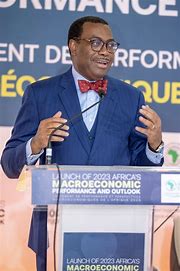Sidi Ould Tah, a Mauritanian economist and former finance minister of Mauritania, emerged victorious in the recent election at the African Development Bank’s annual meeting in Abidjan, Ivory Coast. He is set to succeed Akinwumi Adesina, a Nigerian economist who is stepping down after completing two consecutive five-year terms as the bank’s president.
Tah brings with him a wealth of experience in African and international finance, spanning over 35 years. His tenure as the president of the Arab Bank for Economic Development in Africa (BADEA) from 2015 was marked by significant achievements. Under his leadership, BADEA underwent a comprehensive transformation that saw its balance sheet quadruple, earned it a prestigious AAA rating, and positioned it as one of the top-rated development banks specializing in Africa.
The selection process was competitive, with four other candidates vying for the position alongside Tah. The new president needed to secure at least 50.01% of the votes to clinch victory. Tah’s term is scheduled to commence on September 1, 2025, lasting for five years initially with an option to seek re-election thereafter.
Tah steps into this role during a challenging period for African economies. The continent faces aid reductions from Washington and decreased infrastructure investment from China. Additionally, trade tensions involving tariff announcements have created uncertainty among investors. Despite these challenges, there remains optimism about Africa’s economic resilience amidst climatic disruptions and evolving geopolitical dynamics.
One notable achievement attributed to Tah is his establishment of BADEA’s $1 billion callable capital program dedicated to African Multilateral Development Banks (MDBs). During his campaign for presidency at AfDB, he outlined key priorities such as enhancing resource mobilization efforts, reforming financial structures, leveraging Africa’s demographic dividend, and promoting investments in robust infrastructure.
The African Development Bank represents a collective ownership comprising 54 African countries along with non-regional stakeholders like the U.S., Japan, and Saudi Arabia. Nigeria stands out as one of the largest shareholders within the bank.
In summary…
Sidi Ould Tah’s election marks not just a personal milestone but also an opportunity to steer crucial financial decisions that will shape Africa’s economic future amidst global challenges.”









Leave feedback about this